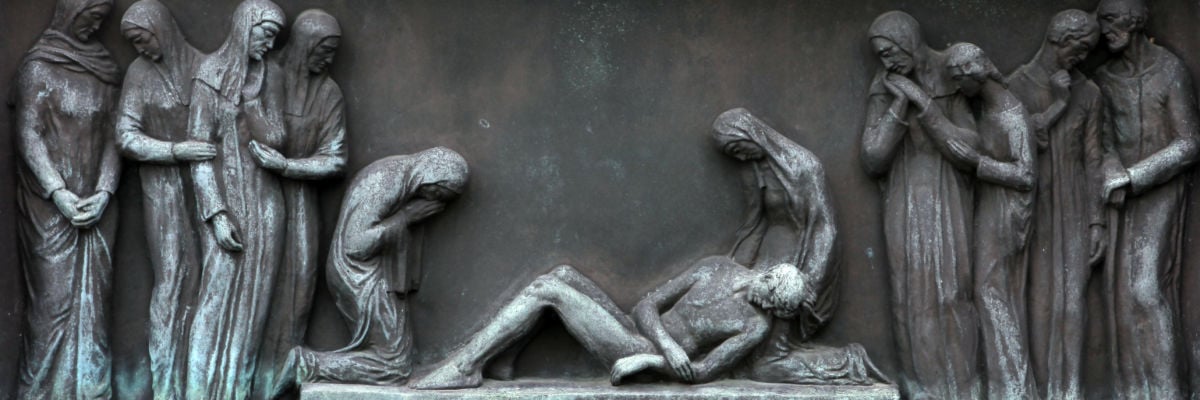
DAY 48
CHALLENGE
“The Catholic practice of praying for the dead is unbiblical.”
DEFENSE
The practice is not just Catholic and it is biblical.
First, it isn’t only Catholics who pray for the dead. Except in the Protestant community, prayer for the dead is universal among Christians. Further, prayer for the dead has been practiced by Jews since before the time of Christ and continues to be practiced by them today.
In Scripture, Judah Maccabee and his men were retrieving the bodies of fallen comrades when they discovered the men who had fallen were wearing pagan amulets, and so “they turned to prayer, beseech- ing that the sin which had been committed might be wholly blotted out” (2 Macc. 12:42).
Protestants may not regard this passage as Scripture, but Catholics do, and it is thus legitimate for them to appeal to it. Whether one regards it as Scripture or not, it constitutes evidence of prayer for the dead among Jews before the time of Christ, and Jews continue to pray for the dead today, particularly using a prayer known as the Mourner’s Kaddish.
The New Testament also contains a plausible instance of prayer for the dead. After praying for the household of a man named Onesiphorus, Paul goes on to pray “may the Lord grant him to find mercy from the Lord on that Day” (2 Tim. 1:18). Paul twice mentions “the household of Onesiphorus” (2 Tim. 1:16, 4:19), but does not greet him with the rest of his household and speaks of him only in the past tense. Many scholars have concluded that Onesiphorus had passed away and thus Paul was praying for the departed.
Many Protestants, too, spontaneously ask God to bless their departed loved ones. Thus the Protestant apologist C.S. Lewis writes: “Of course I pray for the dead. The action is so spontaneous, so all but inevitable, that only the most compulsive theological case against it would deter me. . . . At our age the majority of those we love best are dead. What sort of intercourse with God could I have if what I love best were unmentionable to Him?” (Letters to Malcolm: Chiefly on Prayer, 107).
It is a natural human impulse to pray for our loved ones, even when they have passed from this life.



